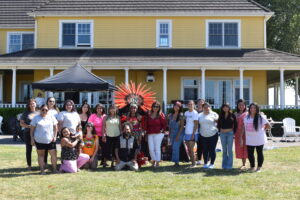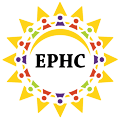Our Humble Roots
About Us
El Programa Hispano’s humble roots began in 1982, when a small group of outreach workers from Catholic Family Services, now Catholic Charities of Oregon (CCO), began to provide services to Latine migrant farmworkers in East Multnomah County.
In the 1990s, El Programa Hispano Catolico (EPHC) expanded to meet the pressing needs of the fast-growing Latine community by connecting them to adequate housing, food security, healthcare resources, legal services, translation assistance, and domestic violence prevention and education.
In 1995, EPHC hired its first domestic violence advocate, marking the beginning of UNICA, Oregon’s first fully bi-lingual and bi-cultural response and prevention program for survivors of domestic and sexual violence. At this point, El Programa Hispano established itself as a trusted place for domestic violence survivors seeking refuge.
As the demographics in Oregon changed and the Latine population quickly grew, so did their needs. EPHC has continued to respond to those needs by developing additional programs and critical services. As we grew larger, it made sense to become our own independent organization and be governed by a board of directors and leadership staff that reflect the people we serve.
In 2015, with the support of CCO, El Programa Hispano became an independent 501(c)3 organization and was renamed El Programa Hispano Catolico (EPHC) with a mission to “Advance racial equity and social justice through the power of our Latine roots, culture and community.”
Today, we serve about 32,000 individuals annually through our Economic Sustainability, Education, Community Wellness, and Domestic Violence and Sexual Violence Survivor Support Programs. Our vision is a thriving Latine Community living to our fullest potential.
Our Mission
To advance racial equity and social justice through the power of our Latine roots, culture, and community.
Our Vision
We envision a thriving Latine community living to their fullest potential.
Our Values
Inclusivity
Collaboration
Empowerment
Social Justice
Ethical & Transparent
Past & Present
Our Story
1982
El Programa Hispano began as part of Catholic Family Services, one of the agencies that later merged to become Catholic Charities. We started with a single outreach worker to help support and empower Latine farm-workers.
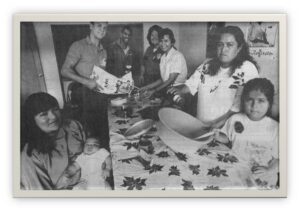

1986
Our work expanded as the years went by and we witnessed Catholic Charities provide support to the 200,000+ immigrants who qualified for amnesty under the Immigration Reform and Control Act of 1986.
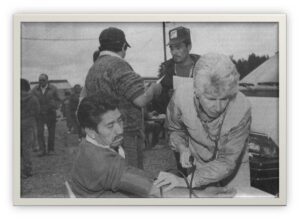

1990
We expanded as a direct response to the community's most pressing needs and aspirations. El Programa Hispano worked closely with our participants to meet migrant farm workers’ basic needs such as food, housing, healthcare, and advocacy.
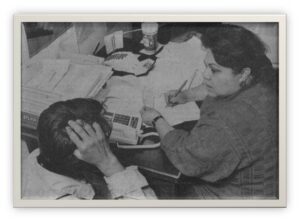

1991
El Programa was serving 300-400 people per month during the fall and winter, and 700 people per month in the summers. We had developed new services to meet the needs of our growing community, these services included translation assistance, driver’s education, camp medical clinics, and legal assistance.
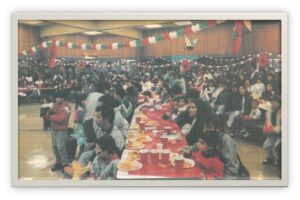

1995
By this time, as an established agency trusted by the Latine community, El Programa saw increased numbers of domestic violence survivors seeking refuge at our offices, service locations, and even parking lot. In 1995, we hired our first domestic violence advocate. This marked the beginning of UNICA, Oregon’s first fully bi-lingual and bi-cultural response and prevention program for survivors of domestic and sexual violence. Today UNICA has close to 20 staff members, family education programs, and Oregon’s only 24-hour bilingual and bicultural emergency hot-line.
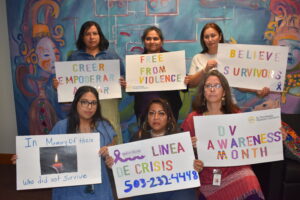

2015
With the support of CCO, El Programa Hispano became an independent 501©3 organization and was renamed El Programa Hispano Católico (EPHC). Our founding board members established the mission to “advance racial equity and social justice through the power of our Latine roots, culture, and community.” And a vision of “a thriving Latine community living to our fullest potential.” They also hired our first Executive Director, Patricia Rojas, who had previously managed El Programa Hispano for 3 years as a Program Director.
2016
We began transferring ownership of all contracts from CCO to EPHC with Federal, State, City, and County contracts. It also expanded its services to offer Housing Supportive Services in Multnomah County.
2018-2023
We have been steadily establishing our administrative services, including Finance, Development & Communications, Human Resources, Benefits & Insurance, Information Technology, Facilities, and Quality Assurance.
We have also expanded our organizational capacity and leadership structure to better serve our community. EPHC started implementing Director level positions to support the leadership of managers and oversight of government contracts and foundation grants.
In these last 5 years, we have experienced significant growth, with a 55% increase in its operating budget and a 61% growth in the number of community members we serve. As well as going from 65 staff members to 110.
